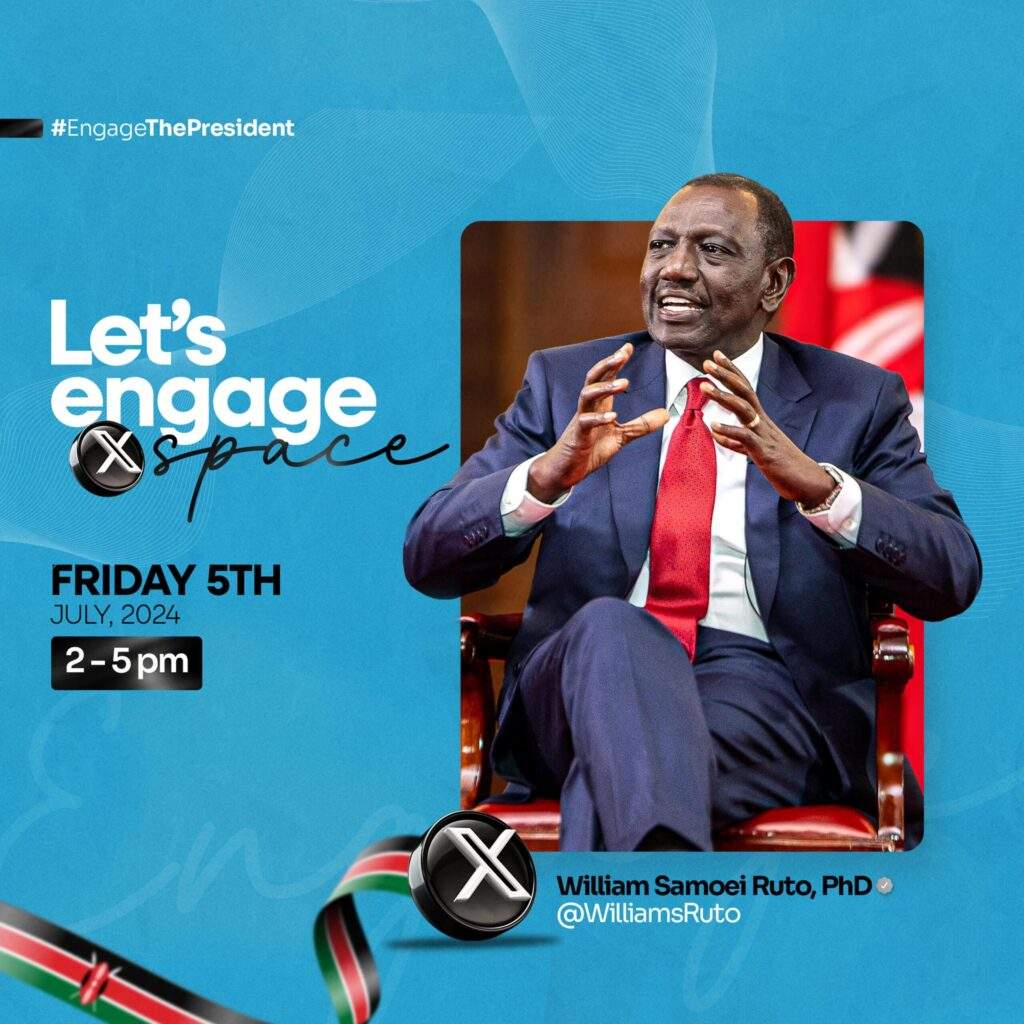In a notable demonstration of the evolving role of social media in political communication, Kenya’s President William Ruto issued a public apology for police brutality during an online forum with anti-tax protesters on Friday, July 5. This unprecedented move highlights the increasing influence of digital platforms in shaping political discourse and fostering accountability.
Apology Amidst Protest:
The apology came in response to a question from Kevin Monari, a leader of the anti-tax protests, who recounted his abduction by security forces during the demonstrations that have led to the deaths of at least 39 Kenyans over the past two weeks. Monari addressed Ruto directly on X, the platform formerly known as Twitter, through its X Spaces feature—a live audio conversation tool that has become a vital medium for public discourse.
Rising Influence of Digital Platforms:
The anti-tax protests, which were mobilized through online channels, underscore a significant shift in how citizens organize and amplify their grievances. The persistent online pressure from activists and protesters compelled President Ruto to retract a controversial finance bill, showcasing the potent impact of social media-fueled activism on policy decisions.
Historical Context of Social Media as a Political Tool:
The scenario echoes the 2020 #EndSARS protests in Nigeria, where young activists harnessed social media to demand the dissolution of the Special Anti-Robbery Squad (SARS), a notorious police unit known for extortion and extrajudicial killings. The #EndSARS movement, which began with online hashtags, evolved into large-scale street protests, marking a significant moment in Nigerian political activism.
Global Trends in Social Media and Political Engagement:
In a similar vein, Ghana’s former president and 2024 presidential candidate, John Dramani Mahama, has announced plans to host a live social media session with journalists. This initiative reflects a broader trend of political leaders using digital platforms to engage with the public, offering a transparent and direct channel for dialogue and accountability.
The New Battleground for Political Accountability:
These developments raise a critical question: Is social media becoming the new battleground for political accountability? The ability for citizens to interact with political leaders and organize mass movements online represents a profound shift from traditional protest methods. As young activists, particularly from Gen Z, increasingly leverage social media to drive political change, the dynamics of political accountability are evolving.
As the digital age continues to transform political landscapes worldwide, the capacity for social media to facilitate transparent and impactful political engagement becomes increasingly evident.
